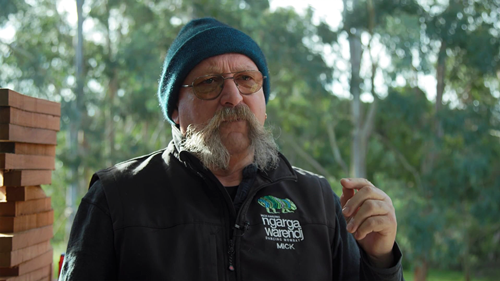Submissions Library
Yoorrook reserves the right not to publish all or part of a submission if it considers it inappropriate to do so. By publishing a submission, Yoorrook expresses no opinion about the content or accuracy of the submission or material referred to in the submission. Submissions are not published where the person making the submission has asked that it be kept confidential.
Refine results
Sort by:
Format
Topic
Type
Showing
Submission – Anonymous 985
This submission discusses moving from their ancestral country seeking acceptance but facing racism. Despite efforts to assimilate, they endured discrimination from people who hated their existence. They now work at a university, fighting to have people handling big projects achieve their social procurement targets. They advocate for investigating social procurement numbers provided by universities.
Submission – City of Melbourne
“The City of Melbourne welcomes the opportunity to provide this Submission to the Yoorrook Justice Commission as we recognise the importance of truth-telling into injustices experienced in all areas of life by First Peoples in Victoria since colonisation. This submission is divided into three sections: direct injustices; indirect injustices; and areas of potential further research.”
Please be aware that this submission contains sensitive material.
Submission – Gavin Brown
Gavin Brown, COO of Victorian Aboriginal Health Service, recounts his challenges and successes as a leader in First Nations organisations.
Submission – Mick Harding
Mick Harding belongs to the Nattarak Baluk and the Yowong-Illam Baluk clans of the Daung Wurrung, commonly known as the Taungurung people. He is an artist and owner of Ngarga Warendj, which means “dancing wombat”.
In this video submission, Mick discusses:
- His history and work as an artist
- His and others’ early work on the treaty, including the Treaty Working Group
- His work with the Heritage Council
- Self-determination
- And more
Submission – Kaiela Institute – Economic prosperity
The Kaiela Institute is a First Nations-led analysis and policy think tank.
This submission responds to Yoorrook’s issues paper on economic prosperity and will:
- provide a high-level summary of Yorta Yorta and regional history as context and background for the development of contemporary policy thinking; and
- outline the Goulburn Murray Regional Prosperity and Productivity Plan as the preferred model for a paradigm shift in the Goulburn Murray towards a rights- and investment-based model, with whole-of-region responsibility for delivery (guided and endorsed by First Nations regional governance); and accountability through the Algabonyah Research and Impact Centre monitoring and evaluating progress against measurable indicators for successful delivery
Submission – Wurundjeri Woi-wurrung Cultural Heritage Aboriginal Corporation – Economic Prosperity
Wurundjeri Woi-wurrung Cultural Heritage Aboriginal Corporation is a Registered Aboriginal Party, legislated under the Aboriginal Heritage Act 2006. They are the Traditional Owners and knowledge holders of Wurundjeri Woi-wurrung cultural heritage. Their country comprises an area of over 7,000 square kilometres and covers 29 different local government areas.
This submission discusses economic justice for the Wurundjeri Woi-wurrung people. It includes sections on:
- Land and water management
- Tourism
- Case studies into Nangenala Cultural Centre and Coranderrk Station
- Wurundjeri Woi-wurrung culture and entrepreneurship
- Funding
- Strength-based Wurundjeri Woi-wurrung economic participation
- Cultural heritage management
Submission – Ngaweeyan Maar-oo
Ngaweeyan Maar-oo, meaning “Voice of and from the people” in Gunditjmara dialect, is the Victorian Government’s implementation partner and shared-decision making body under the National Agreement on Closing the Gap (National Agreement).
This submission aims to build on and further explore the issues raised in the verbal testimony of the Ngaweeyan Maar-oo co-chairs and Executive Director. In particular, this submission:
- provides an overview and stocktake of the National Closing the Gap Agreement
- provides direction to the Victorian Government on next steps in activating the Productivity Commission Review into the National Closing the Gap Agreement recommendations
- makes further recommendations to draw on the Victorian experiences and challenges implementing the National Agreement
- coordinates a statewide collective position on behalf of the Ngaweeyan Maar-oo memberships individual recommendations made through their submissions to Yoorrook Justice Commission
Submission – Kinaway Chamber of Commerce
Kinaway is from the Gunnai language, meaning ‘exchange’. Kinaway Chamber of Commerce is the legislated body responsible for certifying Aboriginal and Torres Strait Islander businesses across Victoria.
This submission is an overview that responds to many of the economic disparities highlighted in the Yoorrook Justice Commission’s findings and underscores the pivotal strategies from the “Yuma Yirramboi – Invest in Tomorrow – Aboriginal Employment and Economic Strategy,” which align with Kinaway’s objectives to enhance Aboriginal employment and economic outcomes.
Submission – Campaspe/Loddon Aboriginal Communities
This submission from Campaspe/Loddon Aboriginal Communities outlines concerns about the transition away from IFVRAGs (Indigenous Family Violence Regional Action Groups) under the implementation of Dhelk Dja action plan. It raises questions about equity, non-Aboriginal decision-makers, and the need for Aboriginal self-determination.


